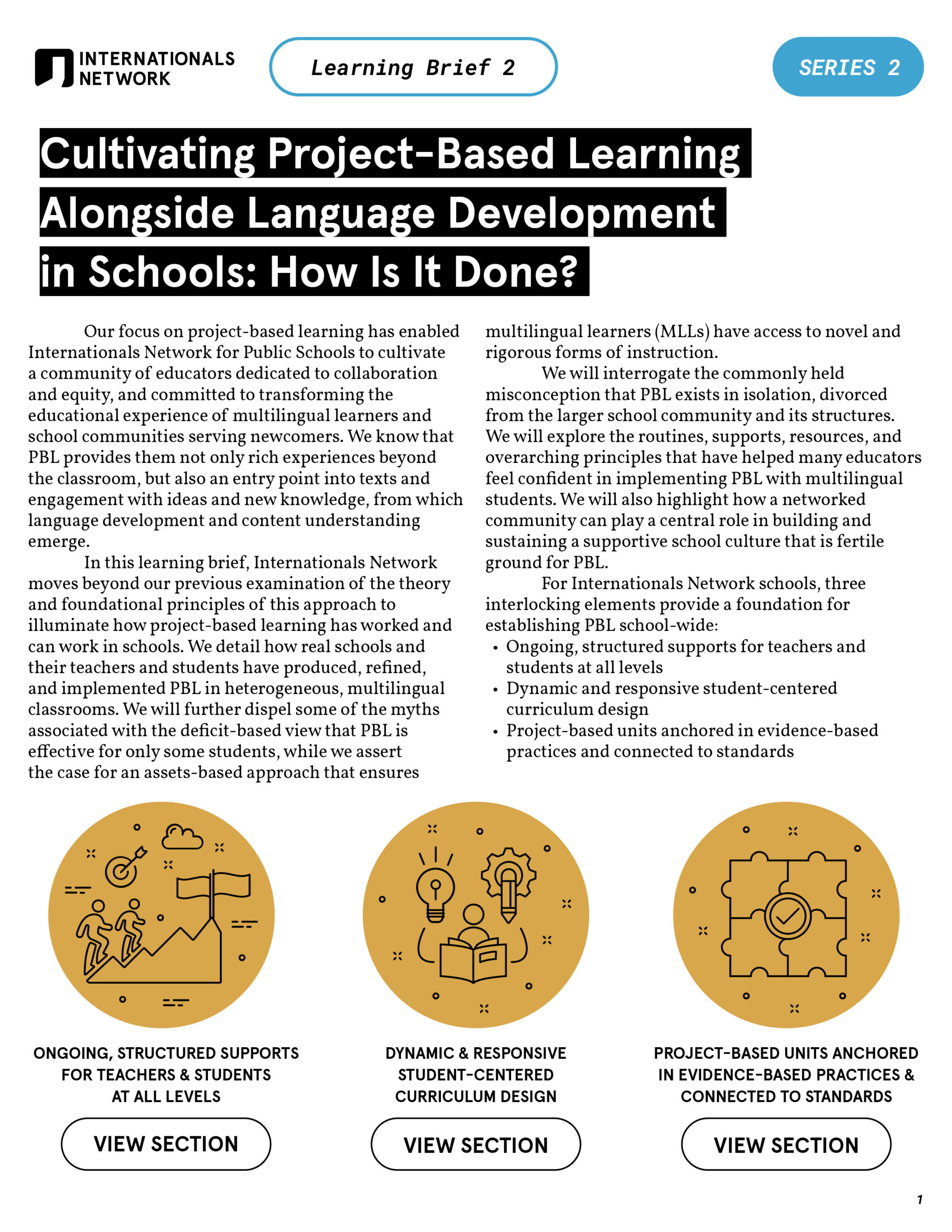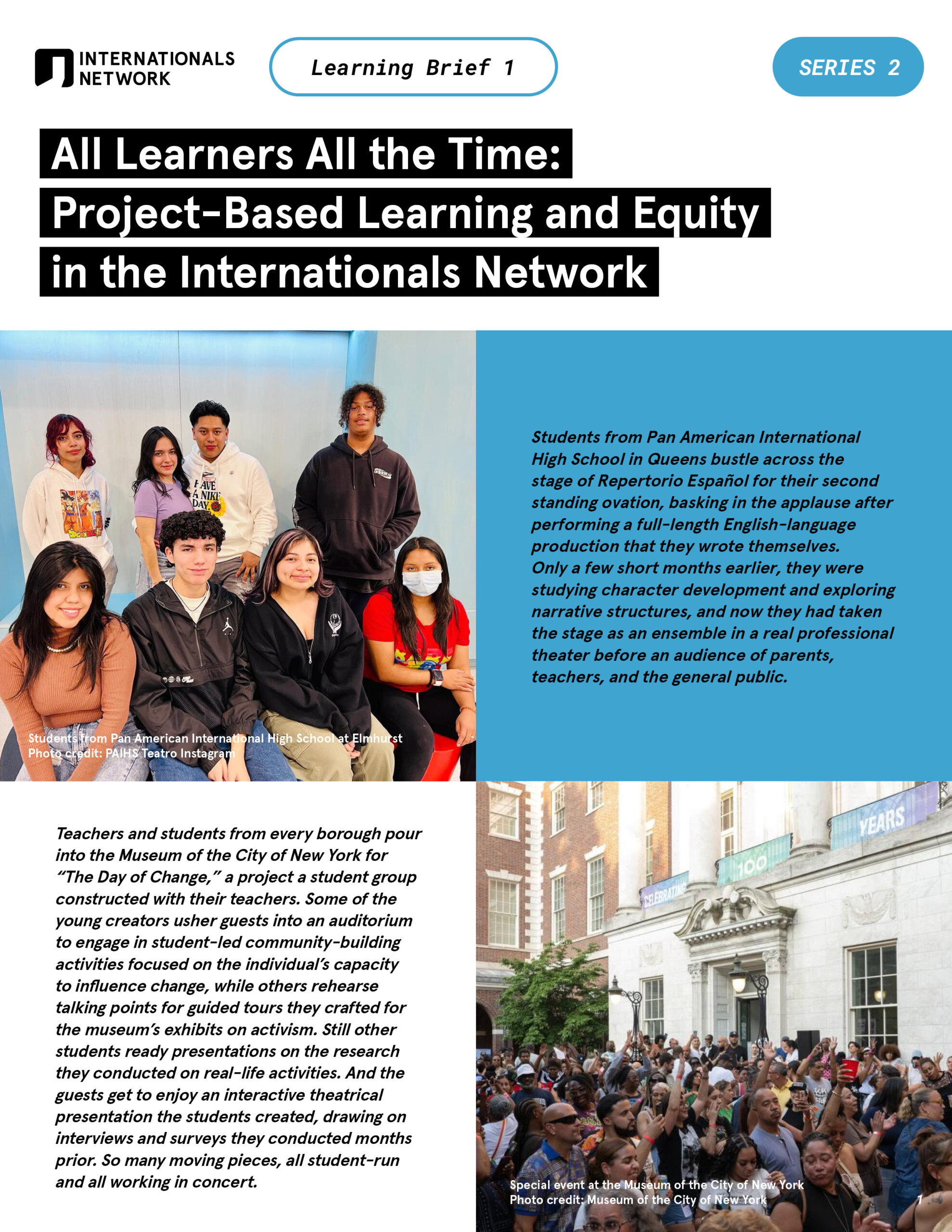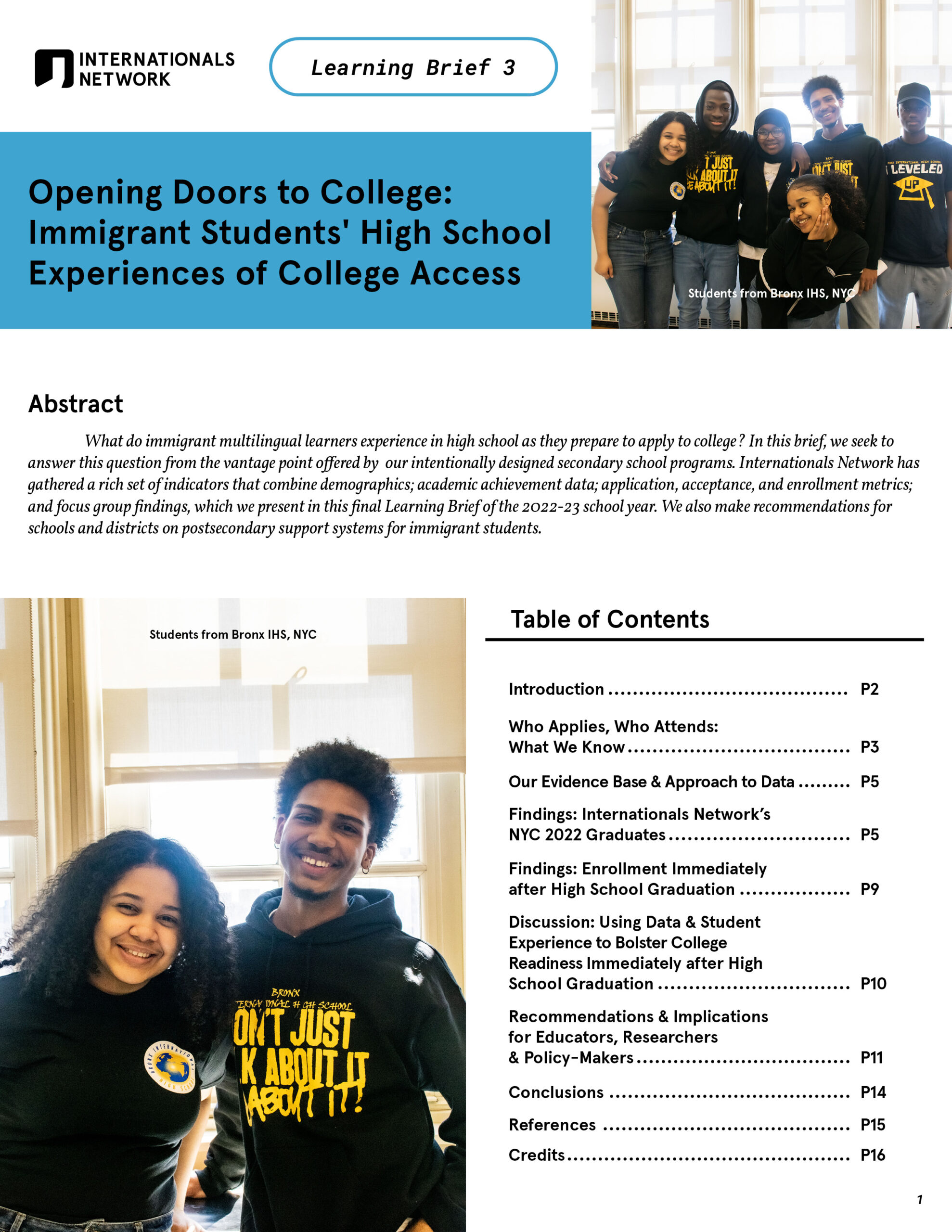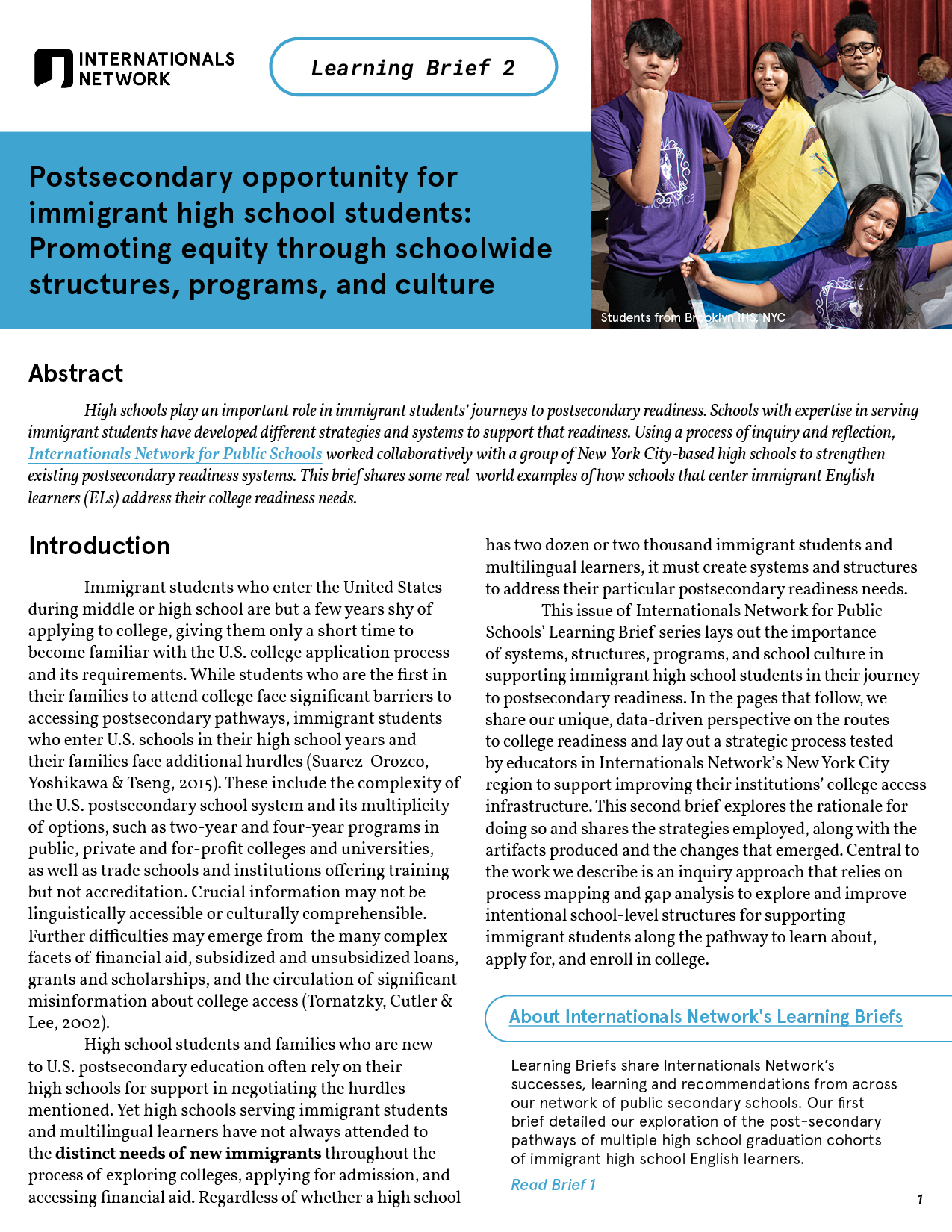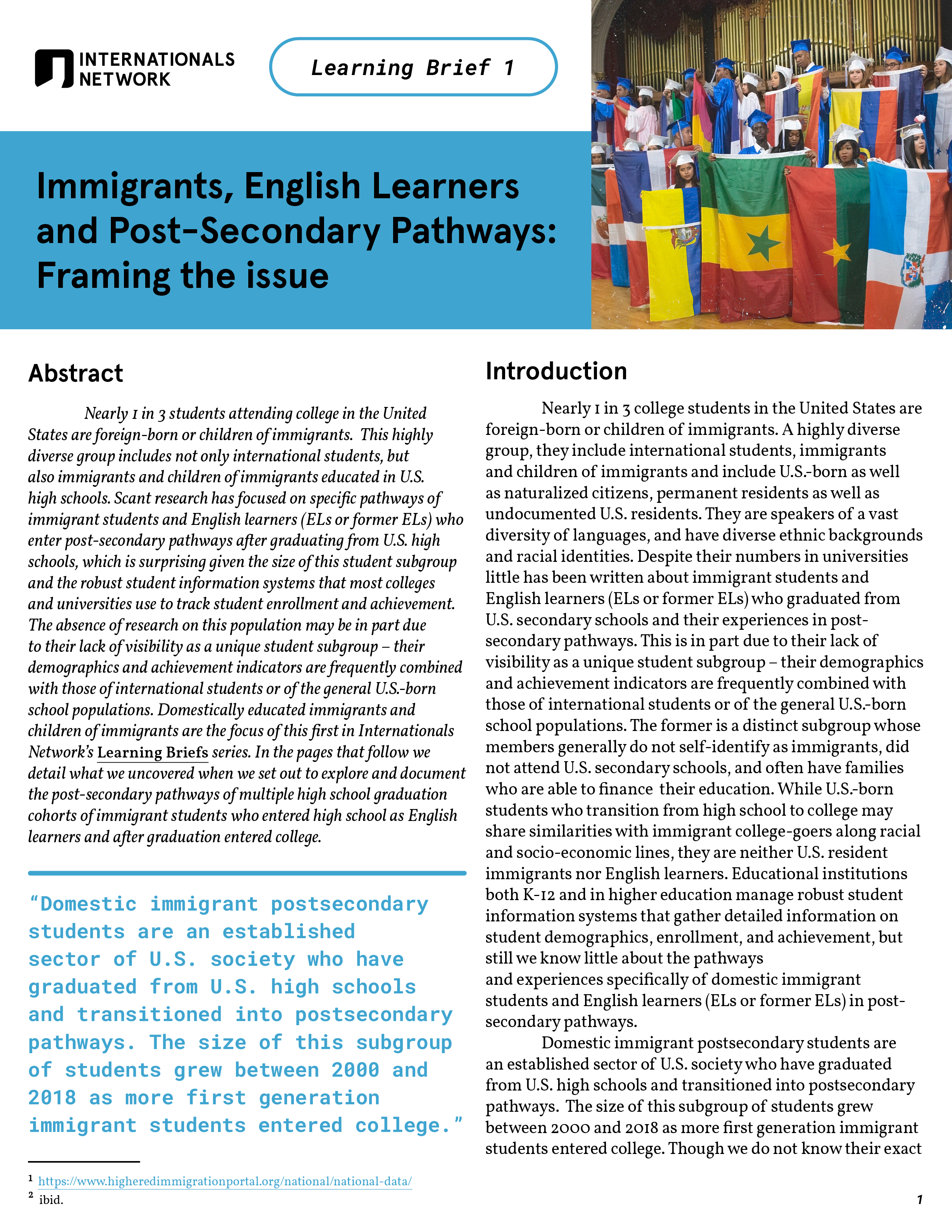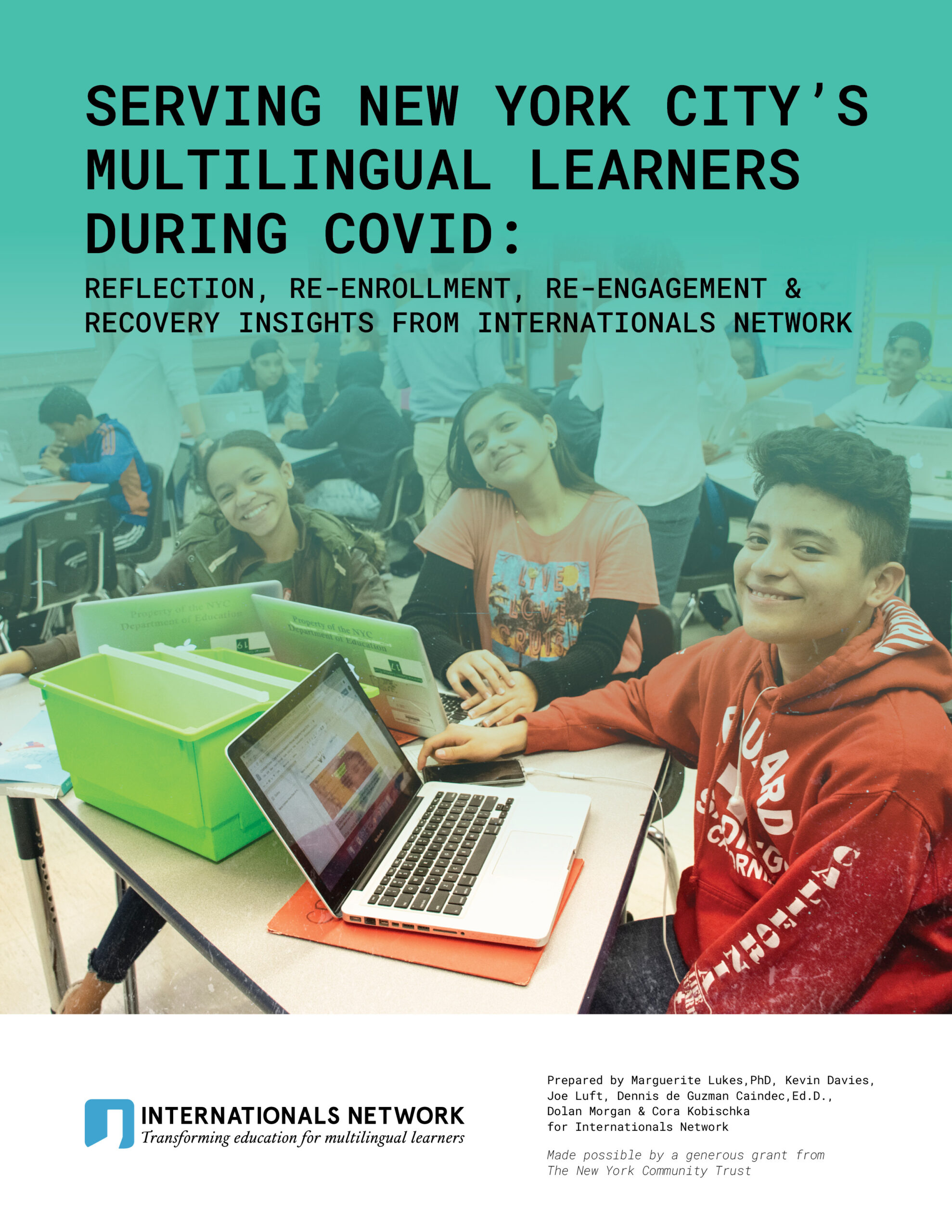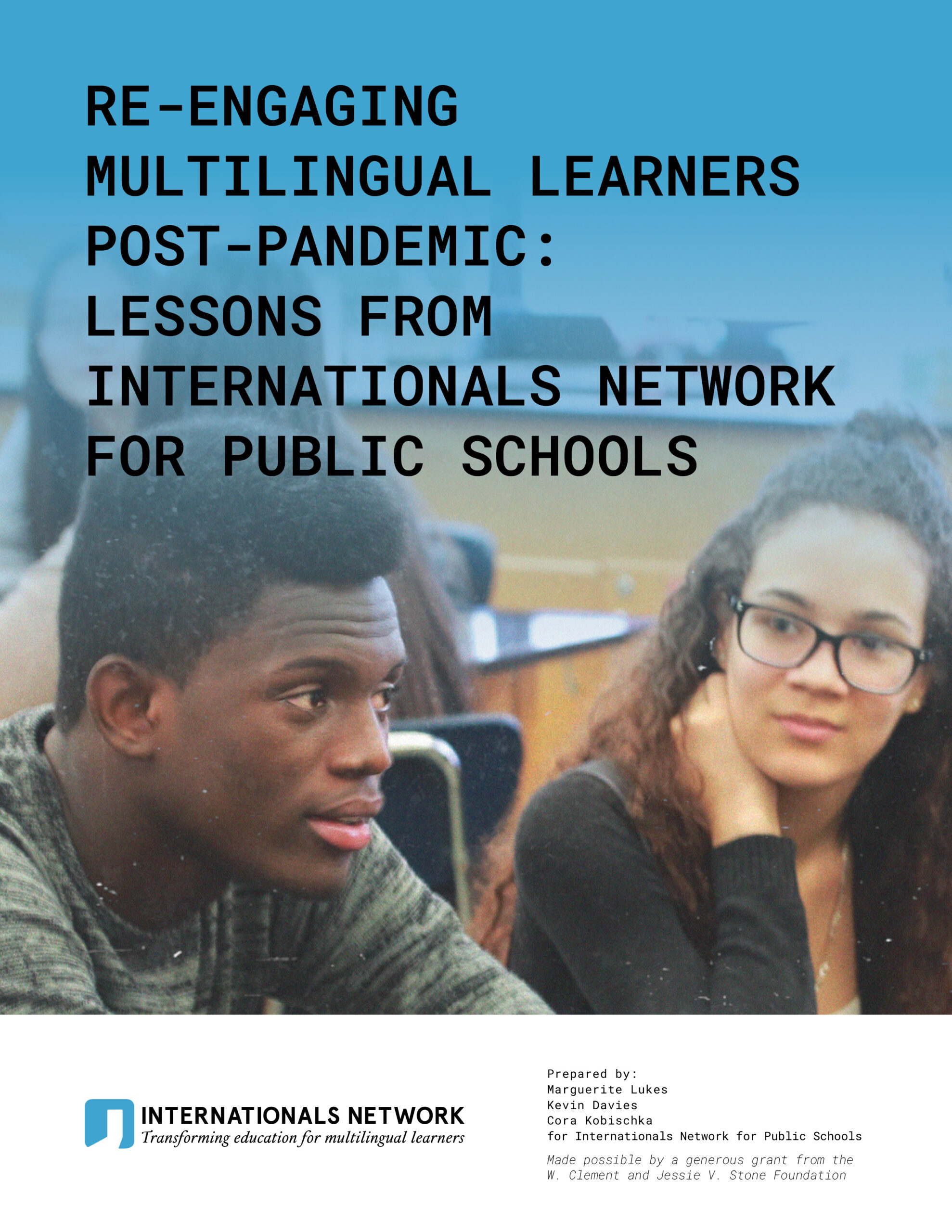Internationals Network offers a diverse collection of publications, including Learning Briefs, reports, and a directory of research papers that cite the successful approach of Internationals Network as well as contributing to the broader discourse on multilingual learner (MLL) education. Our publications are designed to support educators, school leaders, and advocates in enhancing the educational experiences of MLLs. These resources reflect years of dedicated effort in fostering high-impact, inclusive educational environments.
LEARNING BRIEFS
REPORTS
RESEARCH
LEARNING BRIEFS
REPORTS
RESEARCH
LEARNING BRIEFS
Learning Briefs share Internationals Network’s successes, learning, and recommendations from across our network of public secondary schools. Aimed at educators and school leaders, each series of these briefs focuses on key areas that focus on the educational equity of MLLs such as college access and project-based learning. Discover effective strategies and approaches from Internationals Network schools.
Webinar: May 15, 2024 04:00 PM (EST)
Project-Based Learning for Multilingual Learners: Nuts and Bolts
Don’t miss the opportunity to attend a webinar featuring Internationals Network educators who will discuss how they implement a school-wide approach to project-based learning.
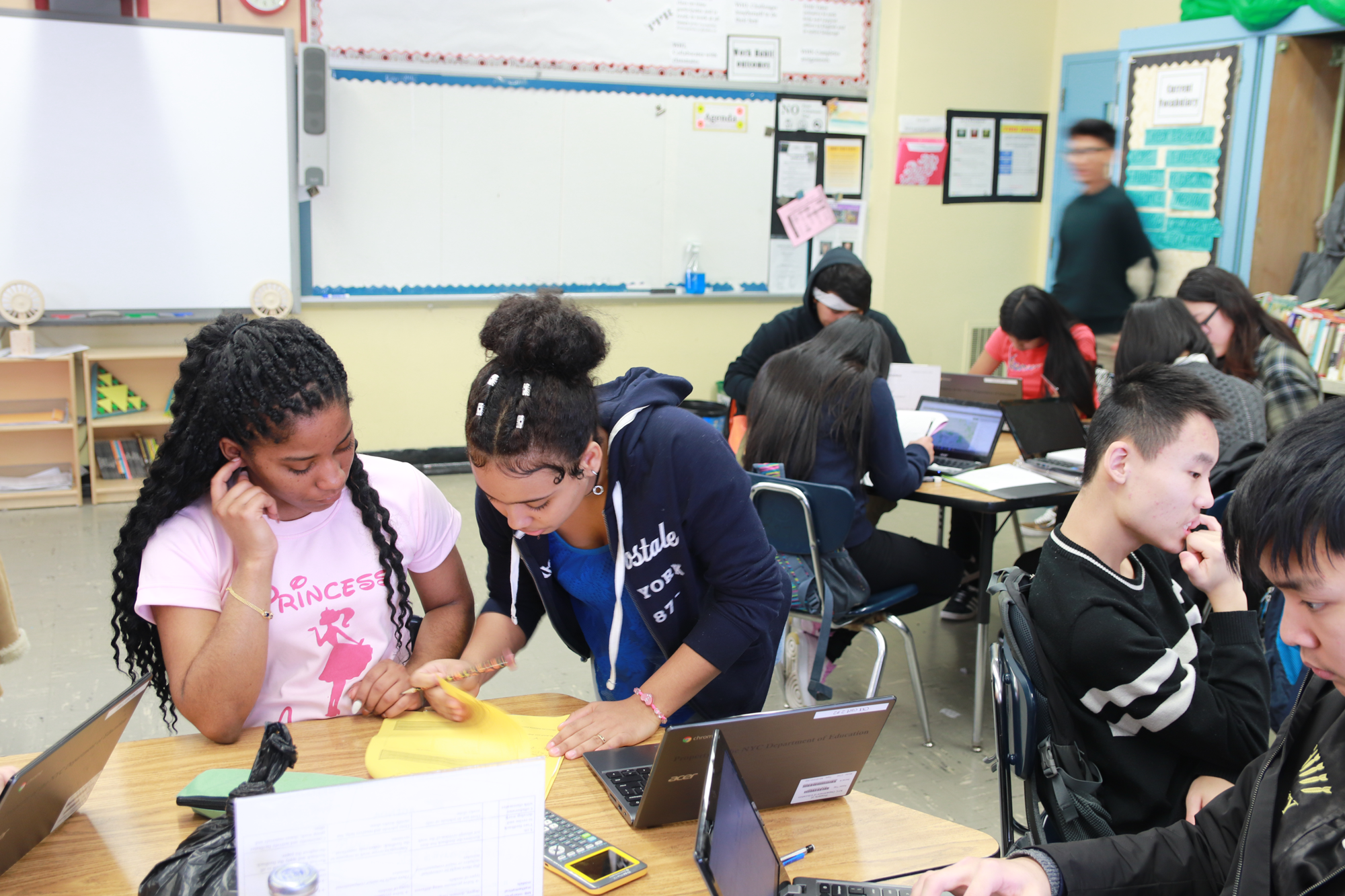
Register
Keep scrolling to access the latest Learning Brief on project-based learning!
Learning Briefs — Series 2: Project-based Learning
How can schools cultivate project-based learning alongside language development?
What does it mean to implement project-based learning with adolescents who must adjust to U.S. schools as they learn English?
Click to discover insights & strategies
Learning Briefs — Series 1: College Access
OPENING DOORS TO COLLEGE: IMMIGRANT STUDENTS’ HIGH SCHOOL EXPERIENCE OF COLLEGE ACCESS
POST-SECONDARY OPPORTUNITY FOR IMMIGRANT HIGH SCHOOL STUDENTS: PROMOTING EQUITY THROUGH SCHOOLWIDE STRUCTURE, PROGRAMS, AND CULTURE
IMMIGRANTS, ENGLISH LEARNERS AND POST-SECONDARY PATHWAYS: FRAMING THE ISSUE
REPORTS
Reports provide comprehensive insights into Internationals Network’s commitment to academic excellence and our efforts to establish an ecosystem of educational equity for multilingual learners (MLLs). The featured reports, through detailed analysis, offer valuable insights into the impact of COVID-19 and the approaches to re-engaging MLLs post-pandemic within Internationals Network schools.
RESEARCH
The highlighted research papers have incorporated Internationals Network’s methodologies and acknowledged our contributions to helping transform education for multilingual learners. Numerous scholars and policy analysts have studied the success of Internationals Network schools, producing an array of reports and peer-reviewed articles that underscore the Network’s impact and effectiveness.
Find even more here.
Leveraging Nuanced Data to Inform Research and Policy for Immigrant Students and Families
More than a quarter of US children have at least one immigrant parent, but researchers and policymakers often do not have adequate data on these children’s experiences in school. Information on the languages students speak at home can provide perspective on students’ experiences and takes communities’ unique strengths and challenges into account. States must report data on languages spoken at home to the federal government each year, yet district-level data are rarely published.
Home language data have untapped value, with far-reaching implications for instruction, student support services, and policy. Better and more public data on student background can enhance our understanding of students’ experiences and provide nuanced information to educators, researchers, and policymakers to better serve distinct student subgroups. Publishing district-level home language data could inform education policy decisions, providing much-needed nuance to public education data systems.
Internationals Network for Public Schools A Deeper Learning Approach to Supporting English Learners
READ THE REPORT
This report highlights how Internationals has re-created, sustained, and spread its complex and equity-oriented model across the country, even in the face of the challenges that arise when seeking to create substantive changes to teaching and learning. The report begins with a description of the Internationals approach and how it designs schools and academies with structures—such as mixed-age classes, teaching looping, interdisciplinary team collaboration, and advisories—to bring its vision and commitments to life. In addition, it identifies the systems and structures that have enabled Internationals to re-create its model in a high-quality manner.
The Internationals Network for Public Schools: Educating Our English Learners Well
The Internationals model greatly increases the number of recent immigrant ELs who stay in high school, graduate, and attend and complete college. What is the secret to the Internationals’ success? How do they organize instruction, develop the curriculum, support language learning, and develop teachers? How do they create bridges for recent immigrants to their new society and to their futures? And how have the schools been able to replicate success from one school to the next? This study examines Internationals’ instruction, assessment, professional learning, and governance practices that contribute to student success.
Long-Term English Learners: Current Research Policy and Practice
English learners (ELs) are one of the fastest growing populations in PK–12 environments and as a subgroup, long‐term English learners (LTELs) form one subgroup that provokes particular concern. The authors present possible interventions for LTELs, including the Internationals Network as a large‐scale intervention model, followed by smaller scale interventions made on behalf of LTELs in existing schools. The article concludes with strategies and suggestions toward better outcomes for LTELs in school, with Internationals Network shown as a best practice.
Leading in the Context of Immigration: Cultivating Collective Responsibility for Recently Arrived Immigrant Students.
Although school based discourses often frame immigrant students as in need of intervention, leaders can challenge this exclusionary logic, encouraging educators to help students develop linguistic and academic skills while affirming students’ rich transnational experiences. This article provides a glimpse into the effective approach used by Internationals Network schools in serving recently arrived immigrant youth, with an emphasis on dimensions of leadership that engender collective responsibility for immigrant youth as well as structures and practices that empower teachers to develop rigorous and responsive curriculum and to support students varied needs.
Deeper Learning: Opportunities and Outcomes
The Study of Deeper Learning: Opportunities and Outcomes examines how some schools have provided opportunities for students to acquire deeper learning skills and how these opportunities are related to student outcomes. The deeper learning theory of action assumes that opportunities to engage in deeper learning activities help students to develop three types of deeper learning competencies: cognitive (mastery of core content, critical thinking skills), interpersonal (collaboration skills, communication skills), and intrapersonal (learning-how-to-learn skills, academic mindsets).
